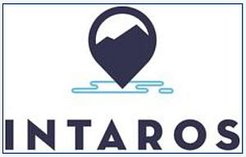Project on Arctic observation kicked-off

Due to decreasing sea ice, permafrost thawing and changes in atmospheric and ocean circulation, the Arctic region undergoes substantial changes with regional and global implications. In addition, human activities such as exploitation of natural resources and marine transportation impact on the environment. To monitor among other things extreme weather conditions, sea level modifications, changes in the ecosystems and coastal erosion the Integrated Arctic Observation System (INTAROS) has been launched on January 10-12, 2017 in Bergen, Norway, gathering 110 polar scientists.
Among them were Prof. Martin Heiman, director, and Mathias Goeckede, group leader at the Max Planck Institute for Biogeochemistry. The junior scientist and his team will be helping to evaluate atmospheric monitoring networks and to exploit the retrieved data to better constrain carbon cycle processes in the pan-Arctic. “We already do intensive research on interpreting Arctic carbon fluxes from the ‘atmospheric point of view’, using inverse modeling and new observation programs such as e.g. a tall tower at the Ambarchik site which is located in the Northeast of Siberia.” Mathias Goeckede explains “INTAROS will allow us to expand these activities, e.g. through the installation of an ICOS automated air sampler at Ambarchik, and strengthen our links to international and interdisciplinary research activities around the Arctic. “, he adds.
INTAROS is coordinated by the Nansen Environmental and Remote Sensing Center in Bergen, Norway, and is one of four projects funded by the EU to contribute to the implementation of EU’s Arctic Strategy. The new project will build on existing observing systems and databases and expand with new observations and instrumentation to monitor biogeochemical parameters.












